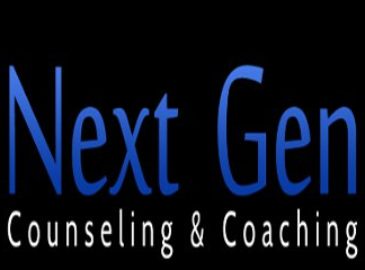What’s the Difference between Recovery Coaching and Life Coaching?
 Recovery Coaching is a partnership where you’re the expert on your life and your Coach provides expertise in supporting successful change. Similar to Life Coaching, Recovery Coaches help people motivated for recovery to stay on track and achieve their goals! They do this by using your strengths and providing accountability.
Recovery Coaching is a partnership where you’re the expert on your life and your Coach provides expertise in supporting successful change. Similar to Life Coaching, Recovery Coaches help people motivated for recovery to stay on track and achieve their goals! They do this by using your strengths and providing accountability.
Recovery Coaching may be new, but it has quickly gained acceptance among professionals because of the huge successes in breaking the relapse cycle! It’s one of the most effective tools in maintaining lasting recovery.
Recovery Coaching helps people avoid returning to all kinds of negative behaviors, not just those addicted to drugs and alcohol.
It’s no longer just a nice option for wealthy people, but a necessity for anyone who wants to stay on track after treatment or therapy!
WHY Recovery Coaching?
Coaching protects all the time, energy, and finances you and your family have invested in treatment, boarding school, or military school. After all, it’s your future, so it should be carefully protected!
Many relapse because recovery is treated as a sprint when really it’s a marathon. They expect to leave treatment “cured” or “fixed.” The reality is… treatment is just the beginning!
 Relapse rates are very high within the first year and especially within the first 90 days after treatment.
Relapse rates are very high within the first year and especially within the first 90 days after treatment.
On average, it takes 4-5 years until relapse risk greatly declines.
Transitioning back to home is VERY stressful. You now face your biggest triggers in the real world … your relationships, responsibilities and environment!
Relapse rates are extremely high among teens and young adults because of being forced into environments where their triggers still exist!
High school and college are the toughest places to stay on track! Very few students get to attend a recovery oriented school, private school, or new school to get a fresh start. Even if you do, there are temptations there and old friends outside of school! School is STRESSFUL!
Then you go home where it’s STRESSFUL too! In treatment, family members learn to tell you the truth. This was probably really hard, but you had a safe place to process your feelings and your time with your family was limited. Leaving treatment, your family doesn’t go away after a short visit!
You probably don’t have a sponsor yet (if you plan to get one), a Counseling or outpatient appointment may be weeks away, and you probably don’t have many healthy, positive friends to call when life gets stressful.
The support system you had in treatment other than your family is suddenly gone so it’s very easy to fall back into old behaviors!
Stress and struggles are normal in early or even long term recovery! Recovery is tough, but absolutely possible with the right kind of support!
You get home… THEN WHAT?
Whether you admit it or not – leaving treatment is scary and overwhelming! You only have one thing to change … just about EVERYTHING!
As your Recovery Coach, I’ll …
 Support you even before you leave treatment to help you through the transition
Support you even before you leave treatment to help you through the transition- Be real, genuinely care, and be a listening ear
- Be a person you know you can trust at a time in your life when you’re unsure who you can trust!
- Help you with realistic goals and specific action steps to work through triggers, overcome obstacles, and build your confidence!
- Tell you the truth and challenge your thinking when others may not
- Be your advocate so you get the support you need in your life and community
- Stick with you until you create a life you love again!
Together, we’ll solve all kinds of problems, laugh, and celebrate!
Bottom line … I’ll help you avoid relapse and avoid the cycle of multiple trips to rehab!
What The Research Says About Recovery Coaching
A recent study indicated people who received some kind of post-recovery checkup at regular intervals in the two-years following treatment saw a lower rate of relapse. One study examining individuals who had relapsed previously found that those with Recovery Coaches stay in treatment, and are 15% more likely to remain in recovery at two years than those who didn’t have a Recovery Coach. While 15% may not seem like a big number, for someone prone to relapse, it’s HUGE and demonstrates the effectiveness of Recovery Coaching over regular therapy used without added Recovery Coaching.
What Recovery Coaching is NOT…
Many terms are used for Recovery Coaches: Sober Coach, Addiction Coach, Addiction Recovery Coach, Sober Companion, Peer Recovery Support Specialist, Peer Recovery Coach, Personal Recovery Assistant, Sober Escort, Recovery Accountability Partner, or Sober Mentor. A few of these are interchangeable, but others are misused.
Professional Recovery Coaches do NOT:
- Babysit you
- Provide treatment or detox
- Serve as a Counselor, Therapist, or Doctor
- Only have a little more time in recovery than you
- Sponsor you
- Represent a 12-step program
If you want to get your life back on track, are tired of looking back, want to start living life with passion and purpose, and would like support in doing so … then Recovery Coaching IS FOR YOU!
Recovery Coach, Addiction Counselor, Sponsor … WHAT’S THE DIFFERENCE?
Sponsors and Counselors play important roles in recovery. Partnered with Recovery Coaching, all three complement each other and strengthen recovery.
Your Counselor and outpatient treatment help you understand addiction and the pain it caused.
Your Sponsor volunteers to hold you accountable to working the steps.
As your Recovery Coach, my only focus is helping you focus on the future and stay on track in a way that works for you! Unlike Sponsors, I’m not limited to a specific program and am a qualified and experienced professional. I have access to many resources and provide services Sponsors simply can’t.
|
Recovery Coach |
Addictions Counselor |
Sponsor |
|
Trained professional. Ideally college educated. Follows professional ethical codes and boundaries. Personal advocate and guide in managing personal and family recovery. |
Trained professional with a college degree. Professionally accountable for boundaries and ethical codes. Help sort through the pain and wreckage of the past to find closure. |
They’re a volunteer mostly operating in isolation from professionals. Guided by the tradition of sponsorship only. Not held accountable for boundaries and ethical codes. Mentor in working the steps. |
| Don’t represent a fellowship, work steps, or tell you how to work a program. Support meetings are not required. If desired, will link you and your family to a recovery community. | Don’t represent a fellowship. Support meetings are sometimes required, often strongly urged. Provides recovery resources. | Directly represent a fellowship, emphasizing the particular program or fellowship as a framework for recovery. Requires regular meeting attendance and participation. |
| Focus on present and future goals. Develop plan of action together using your resources. Build on your current coping skills, strengths, and your God given potential. | Focus mainly on the past, deficits, and resolving pain. Diagnose and treat addiction and mental health. Teach coping skills in order to cope with feelings in healthy ways. | Focus only on 12 step work by looking at your character defects, resentments, and making amends for past behavior. Teaches the 12 steps as coping skills. |
| Meet regularly with a goal to help overcome obstacles to your recovery (i.e. personal, education, relationships, thinking, triggers). | Meet regularly where the goal varies depending on the various issues that need to be resolved from the past. | May or may not meet regularly. Working the steps is the only goal. Accomplished by personal story sharing, advice, and step work. |
| Relapse is treated as a learning opportunity if you’re committed to recovery. When treatment is needed, they will be a resource. | Relationship is often put on hold if you relapse. Referral is usually made to inpatient treatment, but may work through relapses. | Relationship often ends if you relapse. Support is limited to those who seek help within a local 12 step program. |
Ready to Create a New Life in Recovery?
Contact me TODAY or have your Counselor contact me. We’ll get things set up to make your transition home smooth. If you have questions about Coaching, Benefits of Coaching, or have other questions be sure to explore the other pages of my website. If you have any unanswered questions, please don’t hesitate to contact me.
Image used with permission from Microsoft


 Support you even before you leave treatment to help you through the transition
Support you even before you leave treatment to help you through the transition